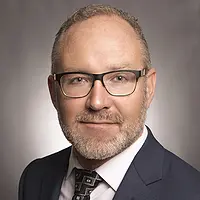This year marks the 20th anniversary of the Africa Energy Forum (AEF), which gathers together representatives from national energy utilities, government regulators, power project developers, engineering contractors and design firms, equity investors, commercial and development banks, law firms, multilateral donors, and technology providers to discuss the present and future of providing power to Africa’s emerging economies. It’s been a great opportunity to reflect on how much has changed in 20 years. But it’s an equally great opportunity to reflect on the challenges that remain.
Sub-Saharan Africa’s energy production and consumption remains the world’s lowest, and the region hosts the world’s largest population without access to reliable energy sources—almost 600 million people. The situation is markedly worse in rural areas, where electrification rates are just 10 percent. That rate means manual, not mechanized labor; darkness after sunset; an extra physical burden for women and children to gather firewood; and no way to build up a manufacturing economy of value-added products and services.
Yet, there have been two notable changes over the past 20 years. The first is business: what used to be seen as a huge development challenge is now widely characterized as an attractive business opportunity, and the buzz and excitement around AEF are revealing. The opportunities that accrue from helping provide energy access represent a multibillion-dollar market. The 2,000+ conference attendees range from manufacturers of pico-solar lighting and charging equipment to grid-scale power plant developers, wind turbine installers, and microgrid specialists—all eager to tap into a market that’s rapidly taken shape and spans the continent.
The second change is evolving financial and technical innovation. Over the past two decades, the conversation has shifted to modern gas pipeline infrastructure, the role of private equity, and the latest thinking on blended finance and partial risk guarantees. In this burgeoning market, competition and technical advances have shortened project lifecycles, increased resilience, and attracted private finance. Improvements in solar module manufacturing cost, wind turbine efficiency and capacity, new business models focused on hybrid generation, improved grid-scale battery storage technology, and evolving payment mechanisms have provided new ways to deliver sustainable, reliable power at a lower cost.
One crucial factor that remains constant is the need for effective governance, sound regulation, regional energy exchange, and financial soundness of power utilities. The challenge of making multimillion-dollar investments in power sector infrastructure falls inexorably to the private sector. The AEF sessions focused on de-risking investments, providing credit guarantees, and extracting guarantees of payment—demonstrating that the primary challenges faced by Africa’s power sector remain squarely in the camp of human and institutional capacity, energy sector governance, and the enabling environment. Investors recognized ages ago that Africa requires, and will reward, the huge investments needed to modernize its infrastructure. Attracting private capital, establishing tax and tariff regimes that fairly compensate investors for risk, and providing guarantees for performance and payment are more important than ever. We must also foster regional energy cooperation. Despite five regional power pools, only 2 percent of energy produced in Africa passes through a competitive regional power market. No matter what changes in the technology of power generation and distribution, if we can’t get the regulatory and business environment right, the lights will stay off.
The idyllic island location of this year’s conference, Mauritius, offers a compelling counterpoint to the conversations we shared: Mauritius’ economy has grown steadily for 37 consecutive years, and through universal access to electricity and education, the country’s highly skilled workforce has underpinned a robust manufacturing sector and a service economy, of which tourism is just one part. Mauritius’ business environment is legendary, with a favorable tax and capital regime that favors and rewards investors.
That says to me that electrifying Africa is possible as long as we ensure the human part of the equation has the skills and knowledge capable of fostering an environment favorable to investment.
